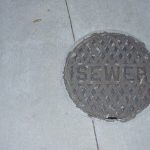Pondering the longevity of household plumbing pipes is a common concern for homeowners, as the integrity of these systems is paramount to the overall functionality and comfort of a residence. As an intricate network snaking through walls, floors, and ceilings, plumbing pipes serve a vital role in delivering clean water for consumption, facilitating efficient drainage, and maintaining comfortable living conditions. However, the lifespan of plumbing pipes is subject to various factors, ranging from the materials used in their construction to environmental conditions and maintenance practices. Understanding these determinants and their implications is essential for homeowners seeking to anticipate and prolong the lifespan of their plumbing infrastructure. Delving into the intricacies of pipe longevity unveils a nuanced landscape where proactive maintenance, informed decision-making during installations or renovations, and awareness of potential hazards converge to safeguard the structural integrity and longevity of residential plumbing systems.
Lifespan of Household Plumbing Pipes
The lifespan of household plumbing pipes varies depending on several factors, including the material from which they are made, environmental conditions, usage patterns, and maintenance practices. Copper pipes, which are commonly used for water supply lines, are known for their durability and longevity, with an average lifespan of 50-70 years. Copper is resistant to corrosion and degradation, making it a popular choice for plumbing systems in many homes. PVC (polyvinyl chloride) and PEX (cross-linked polyethylene) pipes, which are often used for both water supply and drainage lines, have lifespans ranging from 25 to 50 years. These plastic pipes are lightweight, flexible, and resistant to corrosion, providing reliable performance over several decades.
Galvanized steel pipes, once a common choice for water supply lines, have a shorter lifespan of around 20-50 years. Galvanized steel pipes are prone to rust and corrosion over time, leading to leaks and reduced water flow. Similarly, cast iron pipes, which were commonly used in older homes, can last anywhere from 50 to 100 years. While cast iron pipes are durable and resistant to heat and fire, they are susceptible to rust and corrosion, particularly in regions with acidic or aggressive water. Regular inspection and maintenance are essential for preserving the integrity of plumbing pipes and maximizing their lifespan, regardless of the material used. Proper installation, routine checks for leaks or signs of deterioration, and prompt repairs or replacements as needed can help ensure the longevity of household plumbing systems. Additionally, implementing water treatment measures such as filtration or softening can help mitigate factors such as mineral buildup or corrosion, further extending the lifespan of pipes and maintaining optimal performance.
Factors That Can Affect the Lifespan of Household Plumbing Pipes
Pipe Material
The material from which pipes are constructed greatly influences their lifespan. Copper pipes are renowned for their durability and resistance to corrosion, often lasting 50 years or more. PVC and PEX pipes, which are commonly used for water supply lines, are relatively resistant to corrosion and typically have a lifespan of 25-40 years. Galvanized steel pipes, once popular but now less common due to their susceptibility to corrosion, may last around 20-50 years depending on various factors. Cast iron pipes, commonly found in older homes, can have a lifespan of 50-100 years. However, they are prone to rust and corrosion over time. Selecting the appropriate pipe material based on factors such as water quality, intended use, and environmental conditions is crucial for maximizing lifespan.
Water Quality
The quality of the water flowing through plumbing pipes can significantly impact their lifespan. Water containing high levels of minerals, such as calcium and magnesium (commonly known as hard water), can lead to mineral buildup and corrosion within pipes, particularly those made of metal. This can accelerate wear and tear, reducing the lifespan of the pipes. Similarly, acidic water can corrode metal pipes, leading to leaks and structural damage. Water treatment methods such as filtration or water softening can help mitigate these effects and prolong the lifespan of plumbing pipes by maintaining water quality within acceptable limits.
Water Pressure
Water pressure is another critical factor that affects the lifespan of plumbing pipes. Excessive water pressure can put undue stress on pipes, causing them to weaken and develop leaks or bursts over time. High water pressure can lead to strain on pipe joints, fittings, and connections, increasing the risk of failures. Conversely, low water pressure may result in sediment buildup and stagnation within pipes, which can contribute to corrosion and reduce their lifespan. Maintaining optimal water pressure within recommended levels is essential for preserving the integrity and longevity of plumbing pipes.
Installation Quality
The quality of the initial installation of plumbing pipes significantly influences their lifespan. Proper installation techniques, including appropriate sizing, alignment, and secure connections, ensure optimal performance and longevity. Pipes that are improperly installed may be more prone to leaks, corrosion, and structural failures, leading to premature failure. Hiring a qualified and experienced plumber to perform the installation using high-quality materials and adhering to industry standards can help ensure the longevity of plumbing pipes. Regular inspections and maintenance checks can also help identify and address any issues early on, preventing costly repairs or replacements down the line.
Environmental Conditions
The environmental conditions surrounding plumbing pipes can impact their lifespan. Exposure to extreme temperatures, fluctuating weather patterns, and environmental contaminants can accelerate corrosion and deterioration. For instance, pipes located in areas prone to freezing temperatures may be at risk of bursting, while pipes exposed to high humidity or corrosive substances may experience accelerated corrosion. Additionally, pipes installed underground may be susceptible to soil movement, chemical exposure, and external pressure, which can compromise their integrity over time. Proper insulation, protective coatings, and regular maintenance can help mitigate these environmental factors and prolong the lifespan of plumbing pipes.
Usage Patterns
The frequency and intensity of usage can also affect the lifespan of plumbing pipes. Pipes that experience heavy usage, such as those supplying water to large households or commercial properties, may wear out more quickly than pipes in less frequently used areas. Similarly, pipes that are subjected to sudden changes in water flow or pressure, such as those connected to irrigation systems or fire sprinklers, may be more prone to stress and fatigue. Monitoring water usage patterns and implementing measures to distribute usage evenly across the plumbing system can help reduce wear and tear on pipes and extend their lifespan.
Chemical Exposure
Exposure to certain chemicals present in the water supply or household products can affect the integrity of plumbing pipes. Chlorine, commonly used as a disinfectant in municipal water treatment, can corrode metal pipes over time, leading to pitting and deterioration. Similarly, acidic cleaners, drain chemicals, and other household products containing harsh chemicals can accelerate corrosion and degrade pipe materials. Selecting pipes that are resistant to chemical corrosion, such as PEX or CPVC (chlorinated polyvinyl chloride), and avoiding the use of abrasive or corrosive substances can help mitigate the impact of chemical exposure on pipe lifespan.
Soil Conditions
For pipes installed underground or in soil, the composition and condition of the soil can affect their longevity. Soil that is acidic or contains corrosive substances can accelerate corrosion of metal pipes, while soil movement or settlement can exert pressure on pipes, leading to cracks or fractures. Additionally, pipes installed in areas with high groundwater levels or poor drainage may be at risk of corrosion due to prolonged exposure to moisture. Conducting soil tests and implementing proper drainage and protective measures, such as wrapping pipes with corrosion-resistant materials, can help mitigate these soil-related factors and extend pipe lifespan.
Physical Damage
Physical damage from accidental impacts, vibrations, or construction activities can compromise the integrity of plumbing pipes and shorten their lifespan. Pipes located in areas with heavy foot traffic, such as basements or utility rooms, may be at risk of damage from accidental bumps or knocks. Similarly, pipes located near construction zones or heavy machinery may be vulnerable to damage from vibrations or pressure. Implementing protective measures such as installing pipe insulation, padding, or barriers can help minimize the risk of physical damage and prolong the lifespan of plumbing pipes.
Water Treatment Methods
The methods used to treat water within plumbing systems can influence the lifespan of pipes. For instance, water softening systems that remove minerals such as calcium and magnesium can help prevent mineral buildup and corrosion within pipes, thereby extending their lifespan. Conversely, water treatment methods that introduce chemicals or additives into the water supply may accelerate corrosion or degradation of pipe materials over time. Choosing appropriate water treatment methods and maintaining them properly can help preserve the integrity and longevity of plumbing pipes. Regular monitoring of water quality and treatment system performance can also help identify any issues early on and prevent damage to pipes.
The lifespan of household plumbing pipes varies depending on factors such as material, environmental conditions, and maintenance practices. While copper pipes typically last 50-70 years due to their corrosion resistance, galvanized steel pipes may only endure 20-50 years due to susceptibility to rust. Regardless of the material, regular inspection, maintenance, and water treatment are crucial for preserving pipe integrity and maximizing lifespan. By adhering to proper maintenance protocols and selecting appropriate materials, homeowners can ensure their plumbing systems remain efficient and reliable for decades to come, providing peace of mind and avoiding costly repairs or replacements.





